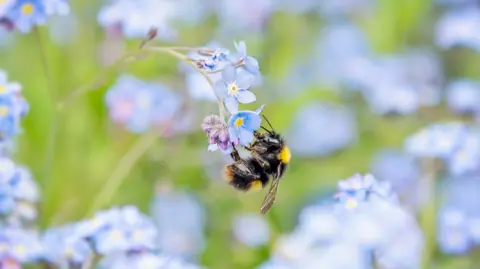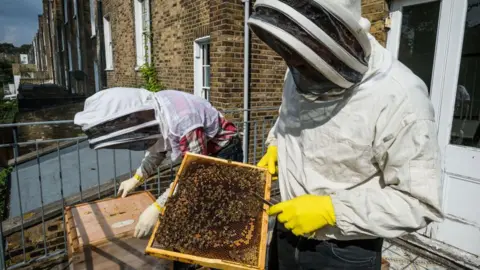Londoners asked to count city's pollinating insects
 Getty Images
Getty ImagesLondoners are being asked to count all the bees, butterflies and moths they see during Monday as part of what is thought to be first annual city-wide pollinator count.
The project aims to gather more data on the health of all pollinators in the capital.
Pollinating London Together (PLT), a charity focused on making the city a better place for native pollinators, is behind the survey and called the current situation "unsustainable".
Naturalists, city workers and schoolchildren have been asked to take part in what the charity hopes will "become an annual highlight of the capital’s ecological calendar".
Dr Konstantinos Tsiolis, a pollinator ecologist at PLT, said native species such as wild bees were in decline due to habitat loss and climate change.
A 2023 report by PLT found that honeybees account for 57% of all pollinating insects within the City of London despite it being only one of 270 species of bees in the UK.
“Most people associate bee decline with honeybees, as it’s often the only bee they know," Dr Tsiolis said.
"Consequently, some gardeners and businesses assume they can help bees by introducing a beehive to their garden or rooftop, but this has resulted in large honeybee colonies in urban areas, which are unsustainable.”
The ecologist said it was important to preserve biodiversity within urban environments and avoid one species becoming too dominant.
"We need a diversity of bee species and other pollinators such as butterflies, beetles, and wasps, to be truly sustainable, so the more people who join the pollinator count, the more accurate the picture we’ll have of what’s happening," he added.
 Getty Images
Getty ImagesThe count is being run in cooperation with City of London Lord Mayor Michael Mainelli.
He said the scheme would help to "protect our precious pollinators".
Anyone can take part in Monday's count by downloading the FIT app to register which pollinators they spot.